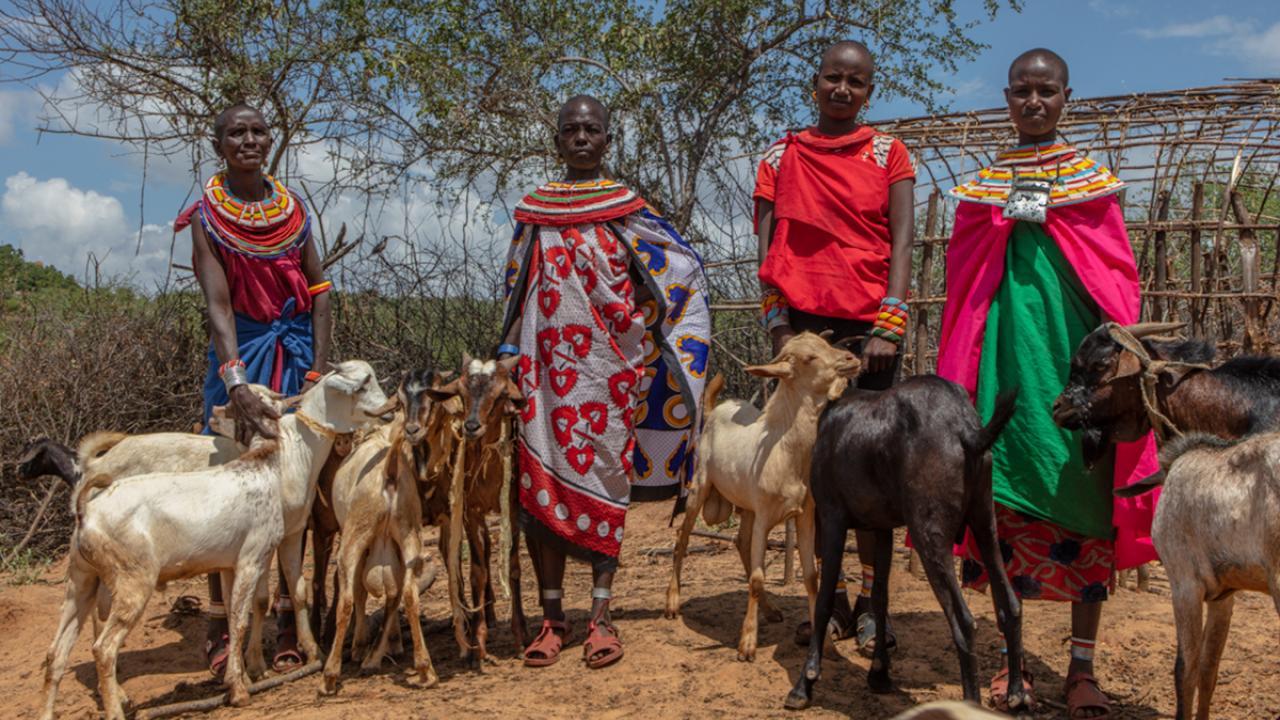
Insurance for Vulnerable Families Cuts Rural Poverty and the Cost of Aid by Half
By Alex Russell, UC Davis
"When economist Munenobu Ikegami first traveled to northern Kenya, he was surprised just how dry it was even in a year without drought. The region doesn’t get enough rainfall to raise crops, so families who live there depend mostly on cattle or goats for their livelihoods.
In areas this dry, drought can be devastating. “Some families lose everything,” said Ikegami. “When they lose their traditional nomadic livelihoods, many take up selling charcoal to have enough to eat.”
Is it enough for national governments and aid agencies to focus only on families who have already lost everything? A new study using advanced economic modeling has found that adding insurance for families who are not yet poor is the most responsive and cost-effective way to reduce total poverty.
“You’re writing a blank check into the future if you don’t target vulnerable families as well as families who are already poor,” said Michael Carter, director of the Feed the Future Innovation Lab for Markets, Risk and Resilience at UC Davis and co-author on the study. “It’s really important to spend money on prevention, which keeps people able to take care of their own needs, rather than band aids after they have already fallen into poverty.”
Pastoralist Families and Drought
Severe drought is a constant risk for countries in the Horn of Africa and the Sahel region that spans the continent south of the Sahara Desert. Pastoralist families, who base their livelihoods on livestock, are especially vulnerable. If failed rains compromise the vegetation that keeps their animals alive, a family may have to choose between either selling off the animals they have left or skipping meals. Either strategy can keep a family poor long after the drought is over.
Ikegami, a professor of economics at Hosei University in Japan, studied these dynamics for nearly ten years as a research scientist for the International Livestock Research Institute (ILRI) in Kenya. He helped evaluate ILRI’s Index-Based Livestock Insurance program (IBLI), which was created and established in northern Kenya pastoralist communities by an international team of economists that included Carter, Chris Barrett, Sommarat Chantarat and Andrew Mude.
Ikegami’s research began with field data from northern Kenya. He worked with Carter, Barrett and economist Sarah Janzen to test different approaches to social protection based on a numerical model of how families manage their livelihoods. The model revealed what the team came to call the “social protection paradox.”
The paradox was that targeting some funding to households who are not yet poor actually has the biggest impact on poverty."
Read the full story at the UC Davis News website.